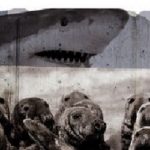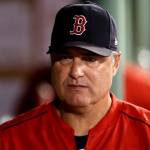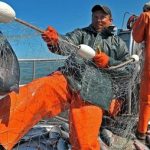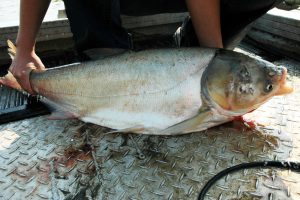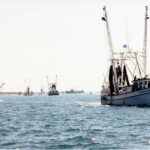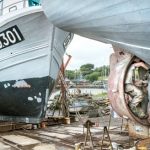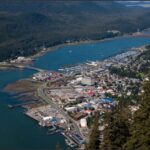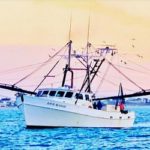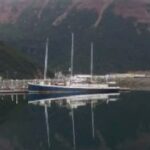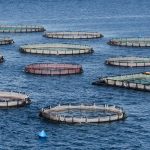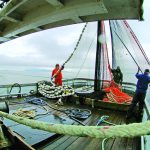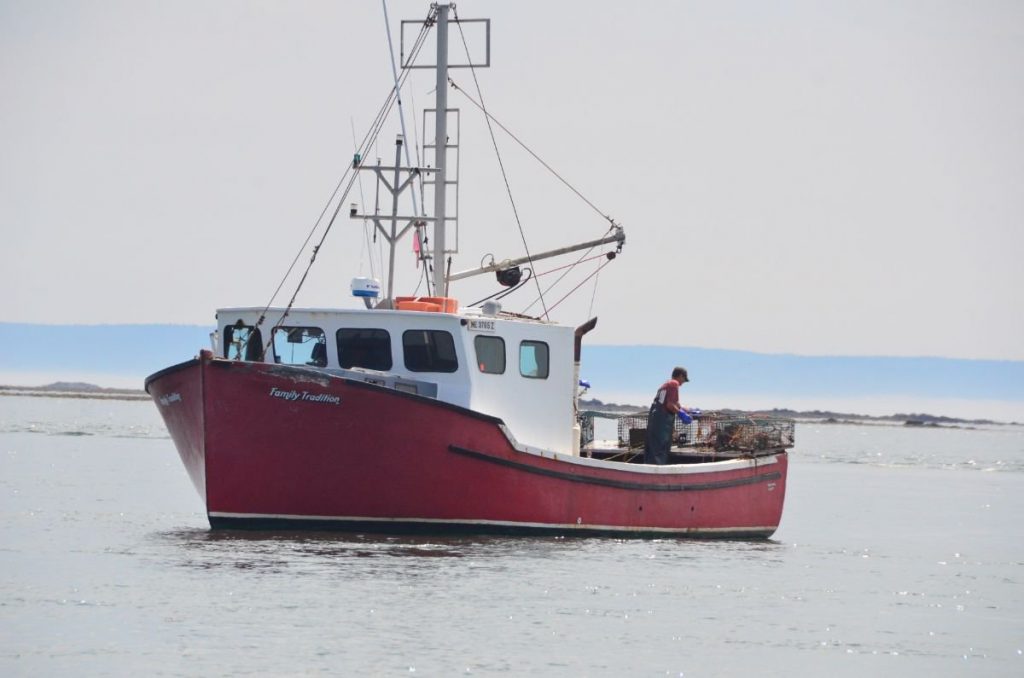Tag Archives: St. Paul
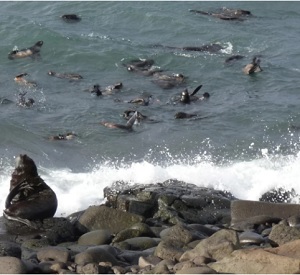
Proposed Bering Sea marine sanctuary draws pushback from fishing industry
The Aleut Community of St. Paul, the tribal government for the Pribilof Island community of around 500 people, says the sanctuary designation would give it greater authority to protect the region’s vast ecosystems and resources, including rich fishing grounds and habitat for the federally protected northern fur seal. NOAA accepted the tribe’s nomination last year, which set off panic bells in the commercial fishing industry. Many in the industry have voiced concerns that bringing in another co-manager could threaten the industry, even though NOAA and the tribe say the change would not affect fishing regulations. Commercial fishing representatives railed against the proposed sanctuary during an April 6 meeting in Anchorage, which NOAA hosted to clear up confusion within the industry. >click to read< 12:06
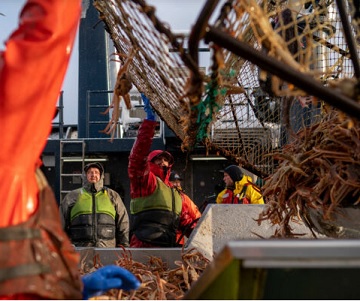
Alaska snow crab fishery saw steep decline. A reporter went ‘Into the ice’ to see it for himself.
CG: Well, at the heart of this reporting that you did were snow crab numbers. So what’s going on with those snow crab numbers? And how steep of a decline have they seen? HB: Well, it’s really pretty stunning for some of the biologists who do the surveys because, of course, in 2020, because of COVID, they were unable to do the summer surveys of crab population. So they did them in 2019. And when they came back in the summer of 2021, they found these staggering drops in abundance of different populations of the snow crab. The juvenile females were down by more than 99%. The juvenile males were also way down. And they’re also less of the mature males and the mature females. So this really triggered a major reassessment of what would be a safe level of harvest for this 2022 season. And they ended up still having a harvest, but reducing it by nearly 90%, >click to read< 16:37
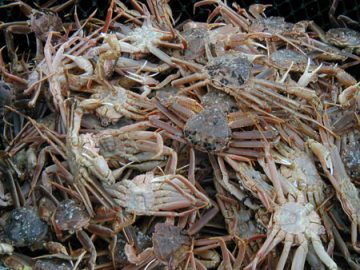
Valuable crab populations are in a ‘very scary’ decline in warming Bering Sea
The forecast for the 2022 winter snow crab season is bleak. At best, it is expected to be considerably less than 12 million pounds. That would be down from a 2021 harvest of 45 million pounds,,, The iconic Bering Sea red king crab, which can grow up to 24 pounds with a leg-span up to 5 feet, also are in trouble. In a big blow to the commercial crabbers, many of whom are based in Washington, the October harvest for these crab has been canceled, something that has only happened three times before. Overall conservation measures are expected to wipe out most of the value of the annual Bering Sea crab harvest, worth more than $160 million during the past year, according to Jamie Goen, executive director of the Seattle-based Alaska Bering Sea Crabbers. >click to read< 13:54
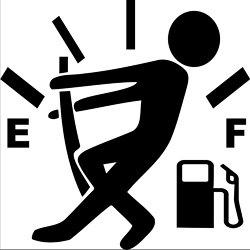
Bering Sea Island’s Fuel Shortage Forces Crabbers South To Refuel – “I don’t think we’ve ever seen anything like this,,,
The Coronavirus pandemic has already disrupted Alaska’s winter Bering Sea fishing seasons, closing plants and adding quarantine related complications for crews. St. Paul, one of the Pribilof Islands, announced the gas ration late last month after bad weather canceled the arrival of a fuel barge, and fishermen say it’s forcing them into days-long detours for refueling. “I seem to remember we had some rations, years back, but it was nothing like this,” Oystein Lone, the captain of a 98-foot crab boat, He and his five-person crew on the F/V Pacific Sounder just started fishing for bairdi, also known as tanner crab, on the eastern side of the Pribilof Islands in the middle of the Bering Sea. >click to read<10:03

Snow crab landing in Bering Sea
The Bering Sea opilio snow crab fishery is slowly moving forward, with 2 percent of the quota landed. Eight vessels made nine landings for a total weight in the past week of some 471,000 pounds, from a quota of 18.5 million pounds, according to the Alaska Department of Fish and Game in Unalaska. The number of snow crab per pot is down somewhat from the same period last year. The most recent count was 201 crustaceans last week, down from 238 last year, according to Fish and Game. “From talking to the fleet, it’s been a slow start for the boats that are out there opie fishing,” said state fisheries biologist Ethan Nichols. But it’s likely to pick up, >click here to read<17:53

































